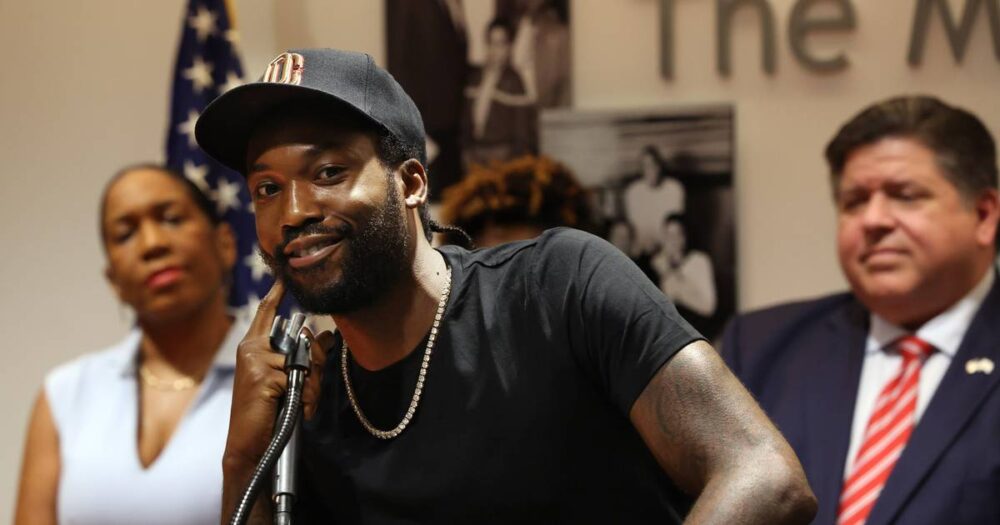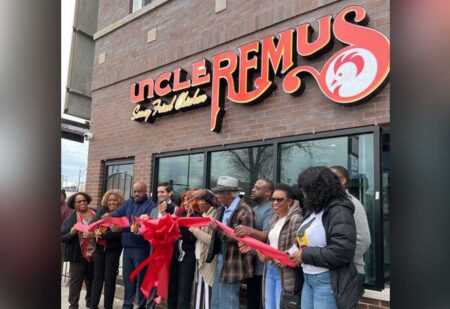In his latest effort to change the way the criminal justice system operates in Illinois, Democratic Gov. J.B. Pritzker on Friday signed into law a measure that loosens restrictions on people who remain under state supervision after being released from prison.
The new law modifies the conditions required to complete the final steps of a sentence, also known as parole and mandatory supervised release, which have historically ranged from mandatory drug testing to the need for permission to leave the state.
The measure is part of a larger pattern of reforms championed by Pritzker and his progressive allies in the Illinois General Assembly that are meant to combat mass incarceration and make the justice process more fair. One of the most controversial of those changes, the elimination of cash bail, was upheld by the Illinois Supreme Court earlier this month.
Unlike many of those measures, however, the legislation Pritzker signed Friday garnered bipartisan support as it breezed through both chambers of the Democratic-controlled General Assembly this spring.
On Friday, Pritzker led a signing ceremony in Chicago’s North Lawndale community alongside the main House sponsor of the legislation, Peoria Democrat and Speaker Pro Tempore Jehan Gordon-Booth, and a number of others, including rapper and criminal justice reform activist Meek Mill.
“Our current supervision system too often operates unfairly with rules that make it simply a revolving door back to jail,” Pritzker said, adding that many people have ended up back behind bars due to a “noncriminal, technical violation.”
“That’s not a system designed to improve public safety. That’s not a system that’s promoting rehabilitation. It’s a system that values reincarceration,” he said.
Under the new law, which goes into effect in January, people on parole and mandatory supervised release would no longer be required to take a drug test as part of their conditions for release unless reasonable suspicion of illegal drug use can be documented.
In addition, the Illinois Prisoner Review Board now must reduce by 90 days a person’s supervisory release term if the individual attains an associate degree or vocational technical certification or earns other educational standards. In the past, a 90-day reduction was granted only to people who earned high school diplomas or passed high school equivalency testing.
The law also allows people under supervision to meet with state officials for their regular check-ins by phone or other electronic communication instead of in person, which is intended to remove obstacles to child care and employment.
“This is a community that has always wanted to work, but the stigma associated with having a criminal record and then being incarcerated makes it hard for individuals to secure employment,” said Brenda Palms, the president and CEO of the North Lawndale Employment Center, where Friday’s bill signing took place.
The event was an upbeat affair, largely due to the appearance by Meek Mill, who spent a chunk of his adult life on probation following his arrest as a teenager.
Onlookers had their phones ready to catch a photo of the Philadelphia-raised rap sensation as he talked about his drug and gun case, which, according to news reports, dragged on for about a decade in the court system after a judge sentenced him to two to four years in prison for probation violations that involved him riding a dirt bike and an alleged scuffle at an airport.
Meek Mill was pardoned in 2019 by then-Democratic Pennsylvania Gov. Tom Wolf.
During his reelection bid last year, Pritzker had to fend off intense criticism from Republicans who accused him and other Democrats of pushing soft-on-crime policies at a time when gun violence in Chicago and other Illinois cities had been on the rise throughout the COVID-19 pandemic.
But with Democrats cementing control of all aspects of state government in the November election, the GOP has been unable to stop Pritzker’s reform agenda.
A sweeping ban on high-powered guns and high-capacity magazines remains in limbo amid multiple legal challenges. But Pritzker scored a legal victory on July 19 when the Illinois Supreme Court cleared the way for Illinois to become the first state to fully eliminate cash bail as a condition for pretrial release. That measure had been vigorously opposed by Republicans and pro-law enforcement groups.
The elimination of cash bail was part of the SAFE-T Act, sweeping legislation passed in 2021 that supporters argue will help create a more equitable criminal justice system. Other major initiatives under Pritzker include legalizing recreational marijuana, which has been accompanied by about 800,000 expungements for low-level marijuana arrest records.
Earlier this year, Pritzker signed into law a measure that abolished natural life prison sentences for most people convicted of committing crimes when they were under 21, giving them an eventual chance at a parole hearing before the review board. Some lawmakers have been pushing to make that law — as well as a separate but similar 2019 law that pertains to other lengthy prison sentences — retroactive.
One criminal justice reform advocacy group has said that if the retroactivity proposal becomes law, it could affect more than 3,000 people in prison in Illinois.
Asked Friday whether he supports the proposal, Pritzker didn’t answer directly but said that he evaluates pardons and commutations on a case-by-case basis.
“Obviously, when you talk about thousands of cases, it is something that you’d have to consider en masse through the legislature,” Pritzker said. “I think there is an understanding across the nation that those kinds of sentences that were meted out years ago may not be appropriate going forward and, therefore, shouldn’t we apply some of what we’ve learned to people who have been convicted under those and sentenced under those guidelines?”
Pritzker also successfully pushed for a multiyear plan to divert some $240 million in state funding to anti-violence organizations that specialize in mediating street conflicts and providing therapy and other social services to those who may be at risk of being party to violence — either as a victim or perpetrator.
But Pritzker’s budgets have also allowed police departments to hire and retain more cops. On Thursday night, the governor emphasized the role of law enforcement when he spoke to an audience of a couple hundred at a north suburban synagogue about the gun ban, which he signed into law in January in response to the mass shooting at Highland Park’s 2022 Fourth of July parade.
He stressed the need for more police officers to be used for the interdiction of illegal guns that end up on the streets in Chicago and other areas of the state.
“We have to do more of this. We just have to. And we have a challenge. We don’t have enough police,” Pritzker said.







